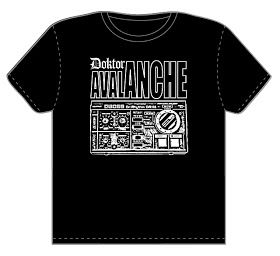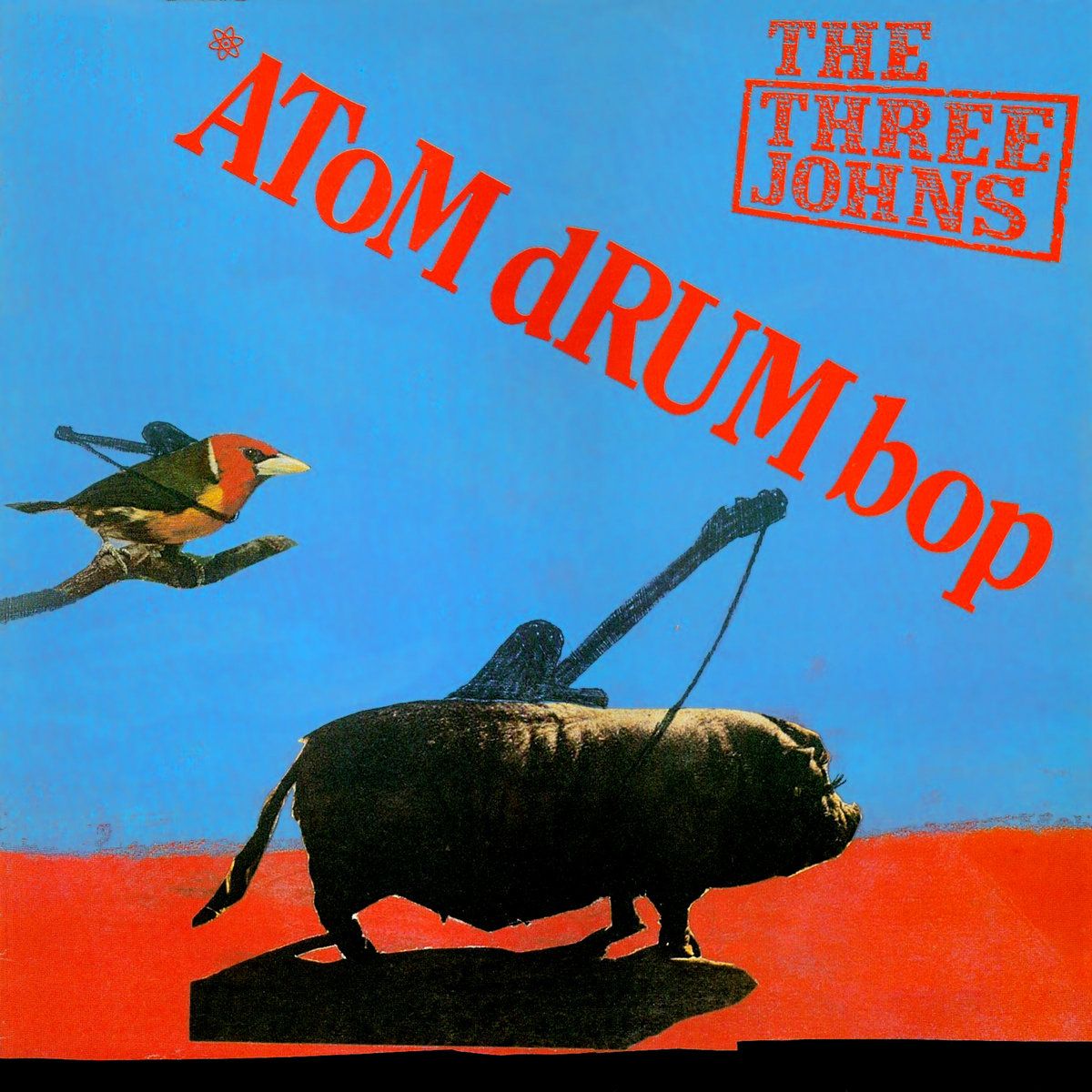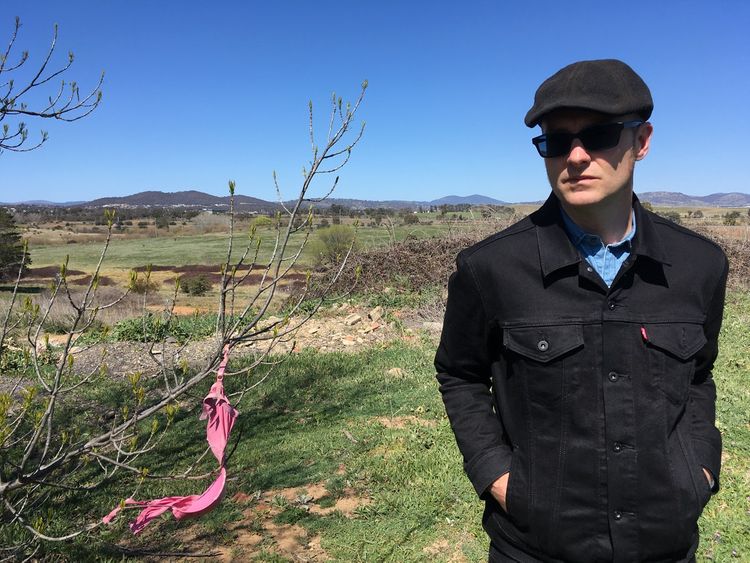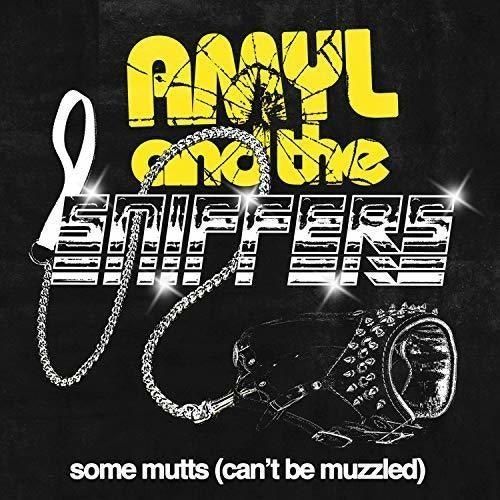Give The Drummer None

Chapter 1: The Golden (Only) Age Of Anthropomorphized Drum Machines

The first programmable drum machine, a proto-Rube Goldberg device working with water and wooden pegs, was invented by Al-Shaykh Ra'is al-A'mal Badi' al-Zaman Abu al-'Izz ibn Isma'il ibn al-Razzaz al-Jazari (Al-Jazari for short) in the late 12th/early 13th Century. After that, the next few hundred years gets a bit sparse drum machine-wise. What with all the armadas needing sinking and all the disapproving of what you're saying but defending to the death your right to say it going on, there apparently wasn’t too much attention paid to programming about the groove. I’m not super interested in history as I don’t like anything written by winners but, roughly, between Al-Jazari’s musical automaton and Ikutaro Kakehashi’s world changing invention of the Roland TR-808, Léon Theremin and Henry Cowell invented the Rhythmicon (or Polyrhythmophone) in 1931, Sly Stone used a Maestro Rhythm King MRK-2 in his 1969 one off 6IX project, Robin Gibb used a drum machine ( “possibly” a Seeburg Select-A-Rhythm) on his hit from the same year, “Saved By The Bell,“ George McCrea did “Rock Your Baby” on a Roland and, in the ‘70s, a bunch of German bands like Cluster and Harmonia alternated between anthropomorphized drum machines and mechanomorphised human drummers. 1980 gave us both the 808 and The Rock-afire Explosion’s Dook LaRue, and a new, reasonably golden age was upon us.
We can all agree that nature is bullshit. It’s not all bad; birch bark, Krakens, the only good SNL skit (Toonces the Driving Cat)... it has its moments for sure. But, generally speaking, there’s nothing that nature can offer that wouldn't be improved by its replacement (or at least augmentation) by a cold steel simulacrum. Hail the new flesh like you’re caught in a downpour and it’s the only cab in sight! Even if you're a weak willed techno-centrist who fears the future, you can at least concede that Rick Hunter was kind of a wuss outside his Veritech armor. That’s all I’m saying; that having a drum machine as the drummer in your band is pretty sick.
For no better reason than my own inclinations to “not get into it,” I’m just going to talk about rock, or rock adjacent, bands that use a drum machine exclusively (not just to augment a human drummer for cross-beat indulgence), to the extent where the drum machine is, for all intents and purposes, a member. Also, they have to bestow upon it It-Thinks-It’s-People name. So, sadly, along with all dance music, Neil Young’s Trans, Sly Stone’s There’s A Riot Goin’ On, rap, pop, electroclash, and a million other things, we must exclude late-period Blitz and The Stranglers from our discussion. Breaks my heart. Nobody appreciates New Wave sellouts more than I. But allegiance to our robot overlords necessitates a certain purity of vision. Going even further, I’m excluding those cowardly rock bands who use programmed drums on albums but live drummers on stage. So no Ministry or Nine Inch Nails or, like, Machines of Loving Grace. To be considered, commitment must be total. If the artists aren’t willing to look ridiculous in front of a crowd, posturing and windmilling awkwardly with nothing but a small black box to support them, like drama club stepchildren at happy-hour karaoke, then to hell with them.

In fact, the very ideas of “history” or “chronological order” are human constructs so I won’t even worry too much about who was “first” to use a drum machine to approximate human beat making. The first “rock” band to exclusively use a drum machine could arguably be Kraftwork or Metal Urbain or Silicon Teens or Suicide. Kraftwork positioned themselves in opposition to such dead languages as “rock” or “roll.” And they were all robots and probably wouldn’t want individualization, even as appreciation for their beat maker, foisted upon the collective. France’s Metal Urbain were undoubtedly a HUGE influence on Steve Albini and a million other grumps, but I find them pretty tedious (particularly the vocals) so their importance will have to be sung in someone else’s newsletter. Mute Records standard bearers, Silicon Teens, while partaking in the proud and storied rock/pop tradition of “novelty,” were, even in their whimsy, an extension of The Normal’s nihilistic anti-rock futurism. They wouldn’t want any part of this craven canon-making. So that leaves Suicide. Suicide, despite (or because of) their being influenced by disco and dub, were as Rock and Roll (whatever that means) as any band that ever existed. The NYC synth punk duo of Martin Rev and Alan Vega never anthropomorphised their Seeburg Rhythm Prince drum machine but they were indisputably the impetus for the two bands that would blaze the path for being real cute about a band’s drum machine. (That the blazed path kind of also ended with the two bands is really besides the point.) (As a side note to Suicide’s rock and roll and influence; it’s tempting to dream of a world where Bruce Springsteen allowed them to influence more than the one album. Born In The U.S.A. with an 808 instead of Max Weinberg? We’d all have flying cars by now.) (To be clear, despite his curls, I don’t know for a fact that Max Weinberg is not a robot. Repeated viewings of Late Night with Conan O’Brien proved inconclusive, then just irritating.) Anyway, none of this matters as none of these bands did the thing I care most about this week: giving their drum machine a name like it was a person they knew, liked very much, and asked to be in a band with them.

Scholars of Shit That Doesn’t Matter can argue over whether it was Leeds’ Sisters of Mercy or Chicago’s Big Black that named their drum machine first. Frontman Andrew Eldritch played live drums on the first Sisters’ single, The Damage Done, but by April 1982’s The Body Electric, the drums were performed by Doktor Avalanche, a Boss DR55 "Doctor Rhythm.” Big Black’s first EP Lungs, with drums by the imaginatively named “Roland” (a Roland TR-606 Drumatix), came out in December of ‘82. So Sisters of Mercy get the honor by a few months, but who’s to say when Big Black’s Steve Albini first made googly eyes at his device. According to Azerrad’s “This Band Could Be Your Live,” Albini had been toying around with a drum machine for years, but I haven’t read it so that’s hearsay. It is safe to say, however, that a performatively regular-guy misanthrope like Albini wasn’t looking to Leeds’ dark prince Eldritch as an influence. So, to avoid repeating the tedium of the “Who Invented Punk” NYC versus London Wars, we’ll call it a divine inspiration draw. (Punk, by the way, was invented by Peru’s Los Saicos in 1964.)
While similar technologies, the drumming styles of Big Black’s Roland and Sister of Mercy’s Doktor Avalanche couldn’t be more different. Roland, with its tinny high hats, dry snare, and thudding kick sound, was as sparse a player as Doktor Avalanche was bombastic. In songs like “Dead Billy” and “Bad Penny,” Big Black’s drummer is attempting to recreate the brutal clatter of Chicago’s slaughter yards and trains. The sound of Al Capone’s tommy guns if one’s inclined to be romantic about it. Doktor Avalanche, conversely, hit the kick like a human heart and played the snare as if only by snapping it could the good Doktor avoid an electric shock that’d short circuit the lil’ fella for sure. Both bands’ concerns were of a loathing directed outwardly and within, but Roland’s shivving style suited a band less concerned with self-reflection than its English counterpart’s more emotive, danceable (and therefore more humanistic) pounding. This is not to say either drummer was “better'' than the other. They both served the material. It’s only the ugliness of our current environments that casts a more sour context to the Chicago band. Big Black were ahead of their time, both sonically and emotionally, but, culturally speaking, our finally catching up with them isn’t exactly cause for celebration. (Both bands’ catalogs still rule the school tho.)
Of the three obvious concurrent drum machine rock bands, Red Lorry Yellow Lorry, Pop Will Eat Itself, and Godflesh, I’m sad to say that the first two are disqualified for our discussion by their disloyalty to the future. Red Lorry Yellow Lorry’s absolutely perfect single “Talk About The Weather” is a dream of drum machine and post punk scorn but they also had/have a human drummer so… so much for them. Doubly sad is the exclusion of grebo heroes PWEI. I love them deeply (at least in theory) and the fact that their drum machine was named “Doctor Nightmare” almost saves them but, well, they had a human drummer too. Arbitrary rules is arbitrary rules. Now, mind you, Godflesh has also made use of flesh and meat to provide their rhythm but, in their case, we apply what is known as the “Godflesh Dictum,” which says, “It’s Godflesh. They can do what they want.”
Without first hearing a note, I took a chance buying Godflesh’s first full length (their first, self titled, release was technically an EP), 1989’s Streetcleaner, after reading Mike Patton (whose band Faith No More I was a fan of) pick it as his favorite album of the year in Rolling Stone. He said every time he listened to it he thought the batteries in his walkman were dying. How could I not run out to the mall and buy it? And Mike Patton was right! The album sounded like walkman batteries dying. And the earth’s molten core cooling. It might be hard to believe that you could so trust the aesthetic judgement of a guy with long hair shaved on the sides. But, in the wilds of 1989, you really, really could. (Again See: Pop Will Eat Itself, early Jesus Jones, EMF, the ignored-at-our-peril command to “Kill Your Television.”)
Godflesh, is a Birmingham trio always consisting of Justin Broadrick (briefly of Napalm Death and Head of David) on guitar and vocals, usually G.C. Green on bass, and always MACHINE on MACHINE. Sometimes they had a dude from Prong helping with MACHINE’s drumming duties. But out of respect for MACHINE’s various tasks (and Prong’s Beg To Differ), we’re not dwelling on this unfortunate concession to human foibles. Godflesh made Streetcleaner, one of the greatest pieces of art the world has ever known. An oceanic achievement of Cthulhic, dimension crashing madness and existential boom-bap. They can grant their own dispensations. Coming out of the country’s crust punk scene that gave the world stink-metal pioneers Amebix and Hellbastard, the humans of Godflesh had a deep appreciation for slothlike, dirging guitars underneath guttural howling and white dreadlocks. At the same time, Broadrick was heavily enamored with the Black sounds, like Public Enemy and Eric B. & Rakim, coming out of America. With that in mind, MACHINE (an Alesis HR-16) was brought on to handle all the noise that mortal flesh could not. It did a swellegant job.
I focus on Streetcleaner over the rest of Godflesh’s catalog because, with crushing songs like “Christbait Rising” and “Like Rats” in the mix with shoegaze-fucking-wishes gorgeousness like “Life Is Easy” and Dead Head,” the band could have disappeared back into the nether vortex that sprung ‘em and still be enshrined in the memory of human/drum machine accomplishment. Everything they did after is hella solid, even occasionally visionary. But in the way that everything God themself did after the first seven days is hella solid, occasionally visionary.
It would be an injustice on par with the band’s lack of renown to not mention the fourth most important Rock Band With A Drum Machine With A Human Name; The Three Johns. The Leeds (there must be something in the water) post-punk/death rock/agit-pop band was formed by Jon Langford during The Mekons’ temporary dissolution. Despite never gaining an audience outside the UK (and there only barely), Three Johns’ discography arguably sounds the least dated of all the aforementioned bands. Their drum machine, Hugo, provided the steady grounding to a songcraft, equal parts scathing art pop and ear-worm folk melody, that could exist in any era. So of course it has been studiously ignored in every era since its inception. It’s enough to hope for the day that drum machines rise up and do all our canonization for us.
That day, however, is far off. The ‘90s spelled the end of the golden age of naming your rock band’s drum machine. Carter’s Unstoppable Sex Machine could have been referring to any unstoppable sex machine, and it was hard to care unless you worked at NME. Grunge was coming fast and drum machines can do a lot of things but they can’t grow stringy hair. Metallic disco bands like Ministry, awash in Akai S9000s, were capable of humor but it was largely in the reasonably exhausting “let’s call our side project ‘1000 Homo DJs’” variety. Like the guy/gal at the mixer telling you how weird/smart/funny they are. (Though, weirdly, My Life With The Thrill Kill Kult is one of the only drum machine bands of that era who has aged with any degree of dignity. I hope they called their Linndrum LM-2 “Loretta” or something...) Bands like Nine Inch Nails, after “maturing” past the giddily morose, swooning pleasures of Pretty Hate Machine, seemed to see fun as something, you know, womanly, to be feared. If they, or any of the plodding industrial-rock bands that came in their wake, named their drum machines something cool, I never heard about it.
Whether “golden age” (or “age” at all) can be applied to an era so arbitrarily delineated as to be almost grotesquely niche (and admittedly *cough* lacking in diversity) is a question a reasonable person could pose. So all the above should be taken in the spirit it’s intended: a way to kill an afternoon. I don’t expect anyone, especially anyone in a society under the sway of Big Drummer, to particularly care what my favorite scrawny/pasty musicians named their drum machines. But in a world that’s lonely and getting lonelier, drink tickets are in ever shrinking supply, and one less band member to cough on you is an advantage, you could take the above as inspiration. Buy a beat box, raise it as your own, and give it a somewhat clever name. Like “Beat-le Bam-ly,” “Roland The (Drum)Headless Thompson Gunner,” or “Drumple Stickskin” or just “Sick Plug-In.” Be wild and free in your making due. There will be plenty of funk in the next world.
Chapter 2: A Brief Interview With Justin from Austerity Program, a truly wonderful, too smart and beautiful for this corrupt world, band that uses a drum machine to great effect.
Zack: Hi! Why do you have a drum machine?
Justin: The Austerity Program has a drum machine because we write music parts that no drummer could play. It’s an aesthetic choice for the type of music we’re interested in creating.
Do you consider it a band member?
No, but the sound of the drum machine is part of what makes us the band that we are. I’m most interested in how bands define parameters for what they’re doing - aka setting limitations and then really doing their best to create new things within those parameters. Moving away from the drum machine would be as different for us as, say, not playing guitar on a record or having a different singer. At some point, is it even the same band?
What’s its name?
We usually just call it Drum Machine on record credits.
Do you ever want or wish for a live drummer?
A live drummer usually makes for a more interesting live performance, so we have to do our best to not be boring when we play a show. We’ve been fortunate enough to make friends with some incredible drummers who would probably be able to handle playing our spastic rhythms. But although that would be cool, the dynamic of the band would really shift and so it’s not worth it.
What’s your favorite drum machine rock (or whatever) band?
We were really influenced by Big Black and Songs About Fucking is their best work. Early Godflesh is also big for us. But we are my favorite drum machine band. I don’t say that to say that we are the best, but more to convey this: the reason we do everything we do for this band is because we really like the music. When you see us play live and we’re jumping around and sweating and going nuts, it’s because we’re really into it. Otherwise, what’s the point of playing oddball stuff like we do?
Chapter 3: Other Bands With Drum Machines As (Essentially) Members of The Band
Mr. Quintron - Drum Buddy (which he built himself)
* Thanks to Jonathan Toubin for info and link
Atom & His Package - His Package. Or maybe it was the other way around...
Slowjam - Ro-Leigh
Stormland - “EZ" D. Rummer
CRESS - Hal 2000
Gut Logic - Hubris https://www.discogs.com/Various-Manifestation/release/467537
Lucy and The Popsonics - Lucy
S.B.F - I dunno… but I like them and it’s my newsletter
Agoraphobic Nosebleed - Drum Kit From Hell
Uniform (extremely killer new album out this Friday!) - Mike Sharp
Services - no name for drum machine but I refuse to pass up a chance to turn you on to this amazing album. Buy it.
Everybody Was In The French Resistance… Now! - Drum-Free Bogart
Chapter 4: Postscript
- The myth is that Echo and The Bunnymen were named after their drum machine “Echo.” Esteemed critic Annie Zaleski pointed out that this is not entirely true. Rather, it was a lie that became a truth. The band’s initial drum machine was a Korg Minipops Junior. In the ‘90s, as a concession to fan sentimentality, Will Sergeant renamed the drum machine “Echo.”
- On Gaucho, Steely Dan used a Wendel drum machine, which they, while not having named it, referred to by its Christian appellation. Wendel would be awarded a Platinum record for its work on the record.
- Steve Reidell points out that Genesis referred to their drum machine as “Roland [CR-78] the bisexual drum machine” on at least one occasion.
- The anonymous (presumably human) transcriber of Heavy Metal press doggerel, “metal.txt,” points out that OMD performed alongside a TEAC 4-track tape recorder christened "Winston.”
- As pointed out by Jolie Holland, the drummer on Bonnie “Prince” Billy’s Arise Therefore, a Mayatone, is credited as “ Maya Tone.” As a side note, Will Oldham is most assuredly a Three Johns fan.
- Both AC/DC and Can referred to their drummers, Phil Rudd and Jaki Liebezeit respectively, as “drum machines.” Despite this, and with all due respect to both artists, neither drummer is a literal machine. Sucks to be fleshy, mortal them.
- Thanks for reading!




